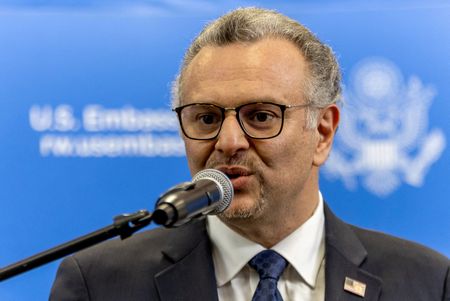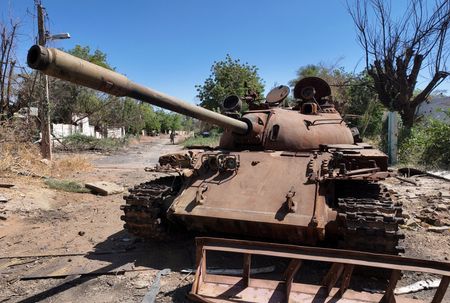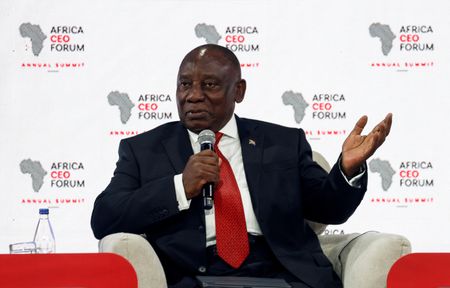DAKAR (Reuters) – A West African al Qaeda affiliate said it killed 200 soldiers in an attack on an army base in Burkina Faso this week, sharply increasing its earlier death toll claim, according to a group that tracks the online activity of Islamist militants.
Jama’a Nusrat ul-Islam wa al-Muslimin (JNIM) made the latest declaration via a formal statement, U.S.-based SITE Intelligence Group said on Thursday, a day after it said JNIM had claimed to have killed 60 soldiers.
Reuters could not immediately verify the statements. Burkina Faso’s government did not respond to a request for comment.
The base in the northern town of Djibo came under attack on Sunday morning, with hundreds of fighters overrunning and destroying it, security sources told Reuters at the time. A police station and market were also targeted, they said.
Satellite footage from the day of the attack shared with Reuters shows burn marks and smoke over the military base, burn marks on a nearby prison and plumes of smoke above a hospital and market.
Although there was no official toll or government statement on the attack, three Djibo residents told Reuters that dozens of soldiers and civilians were killed. JNIM has since blocked road access to the Djibo base.
SITE previously said Ousmane Dicko, head of JNIM in Burkina Faso, had appeared in a video urging residents of Djibo to leave the town for their own safety.
Analysts say JNIM has been ramping up attacks in Burkina Faso, where a military junta that seized power in 2022 promising security has increasingly struggled to turn the tide against Islamist insurgents.
JNIM claimed multiple attacks in Burkina Faso on May 11 alone as junta leader Ibrahim Traore was visiting Russia, where he met with President Vladimir Putin.
Conflict Armament Research, a group that tracks illicit arms flows, told Reuters that Islamist groups in West Africa’s Sahel region have been targeting military positions to reinforce their arsenals.
“The strategy Salafi jihadist groups have implemented in Burkina Faso, Mali and Niger of diverting weapons from state custody to strengthen their military and propaganda objectives, continues to prove highly effective,” the group said.
(Reporting by Anait Miridzhanian and Robbie Corey-Boulet; Editing by Alex Richardson and Joe Bavier)





